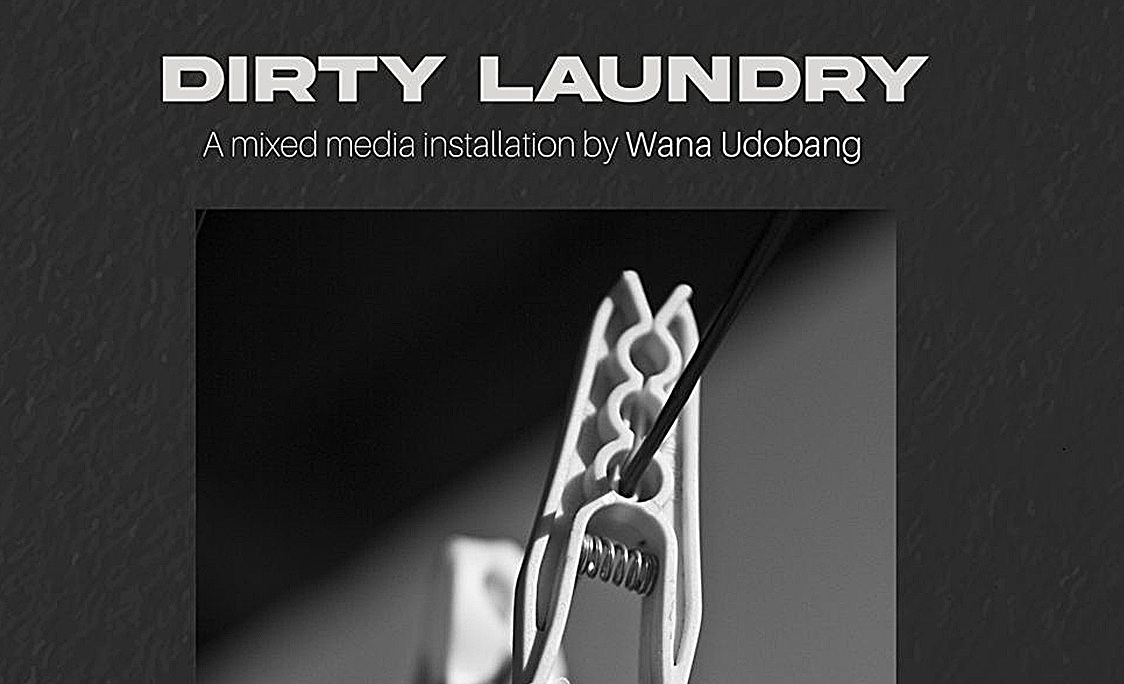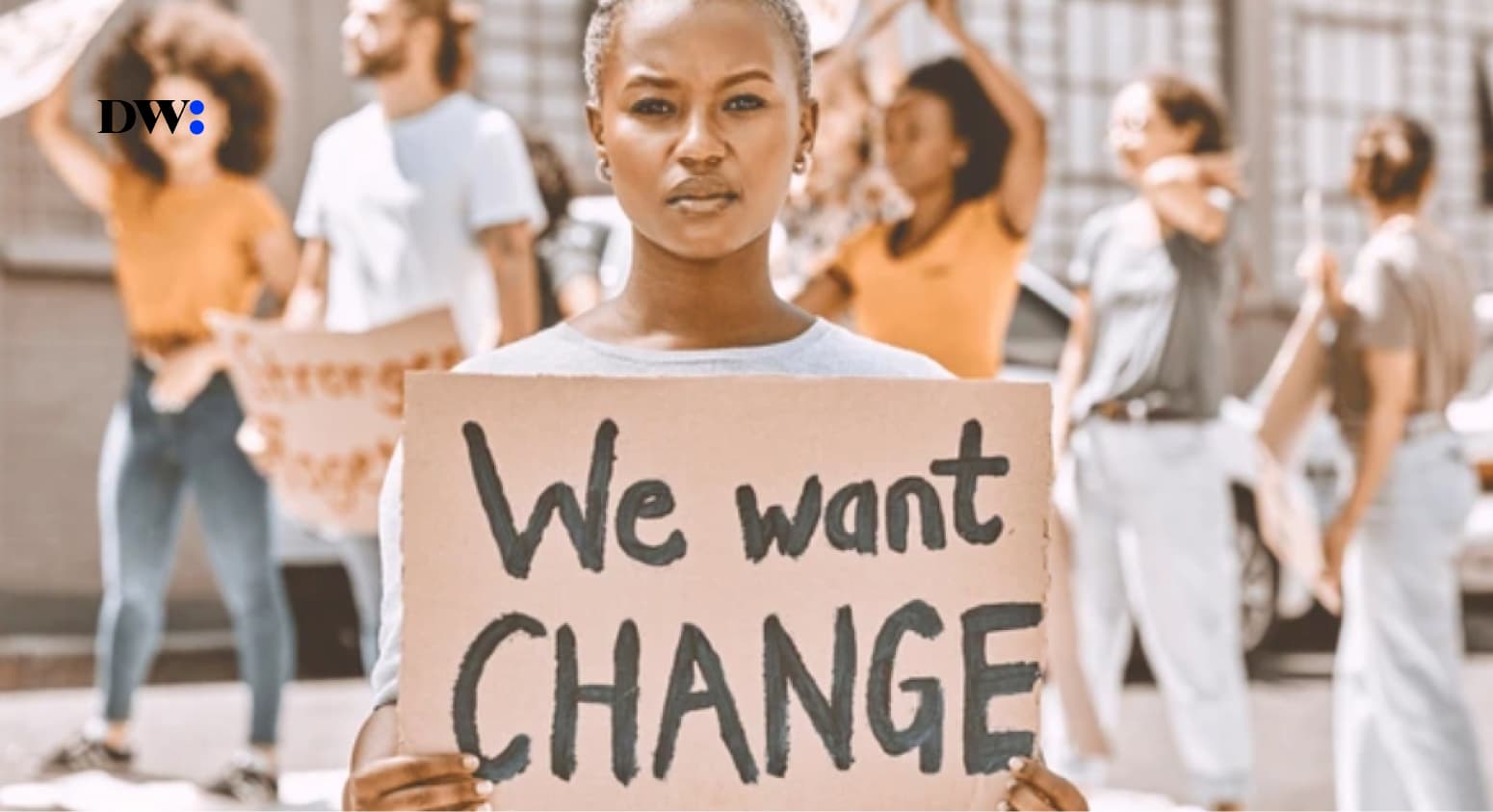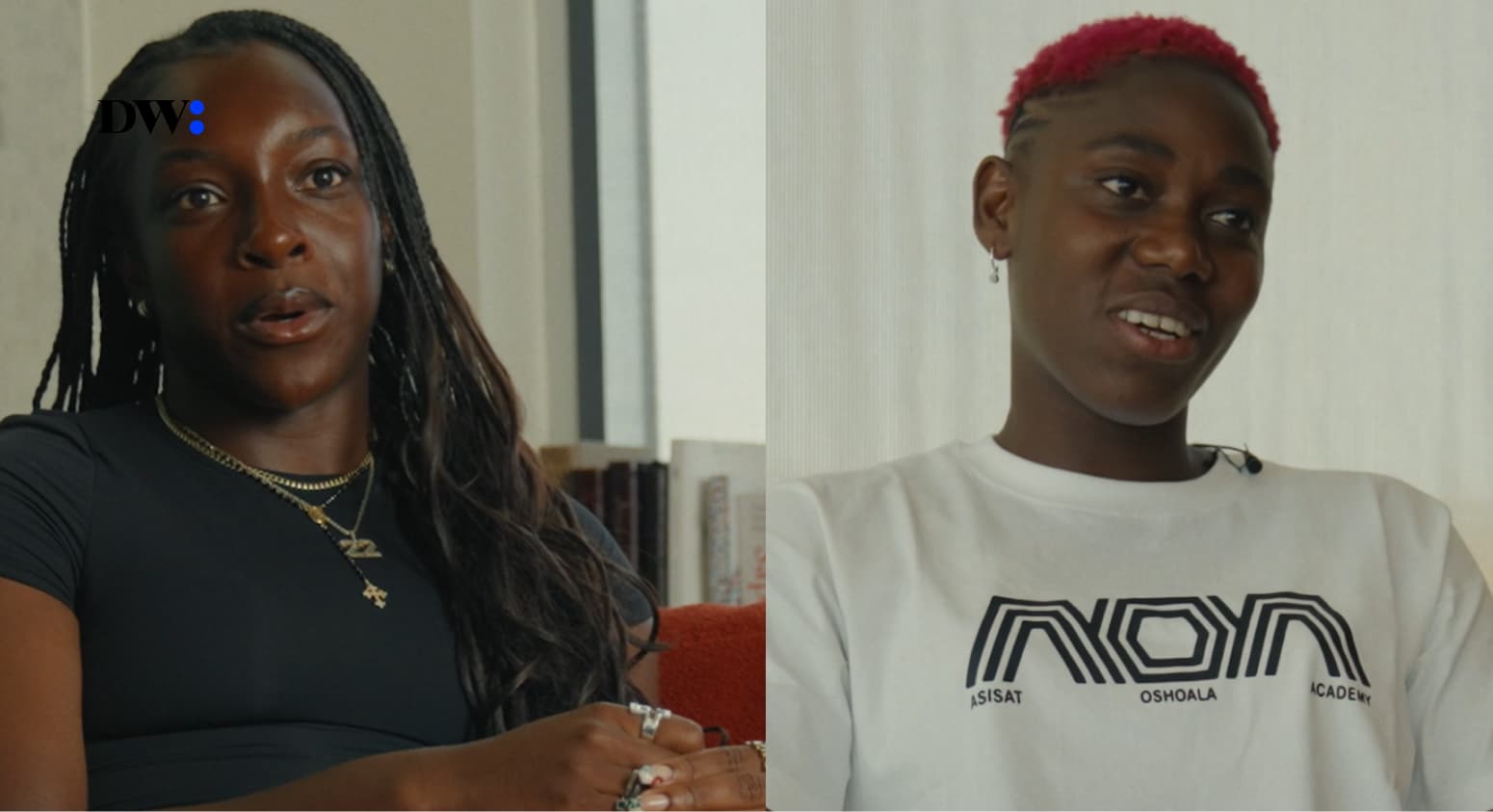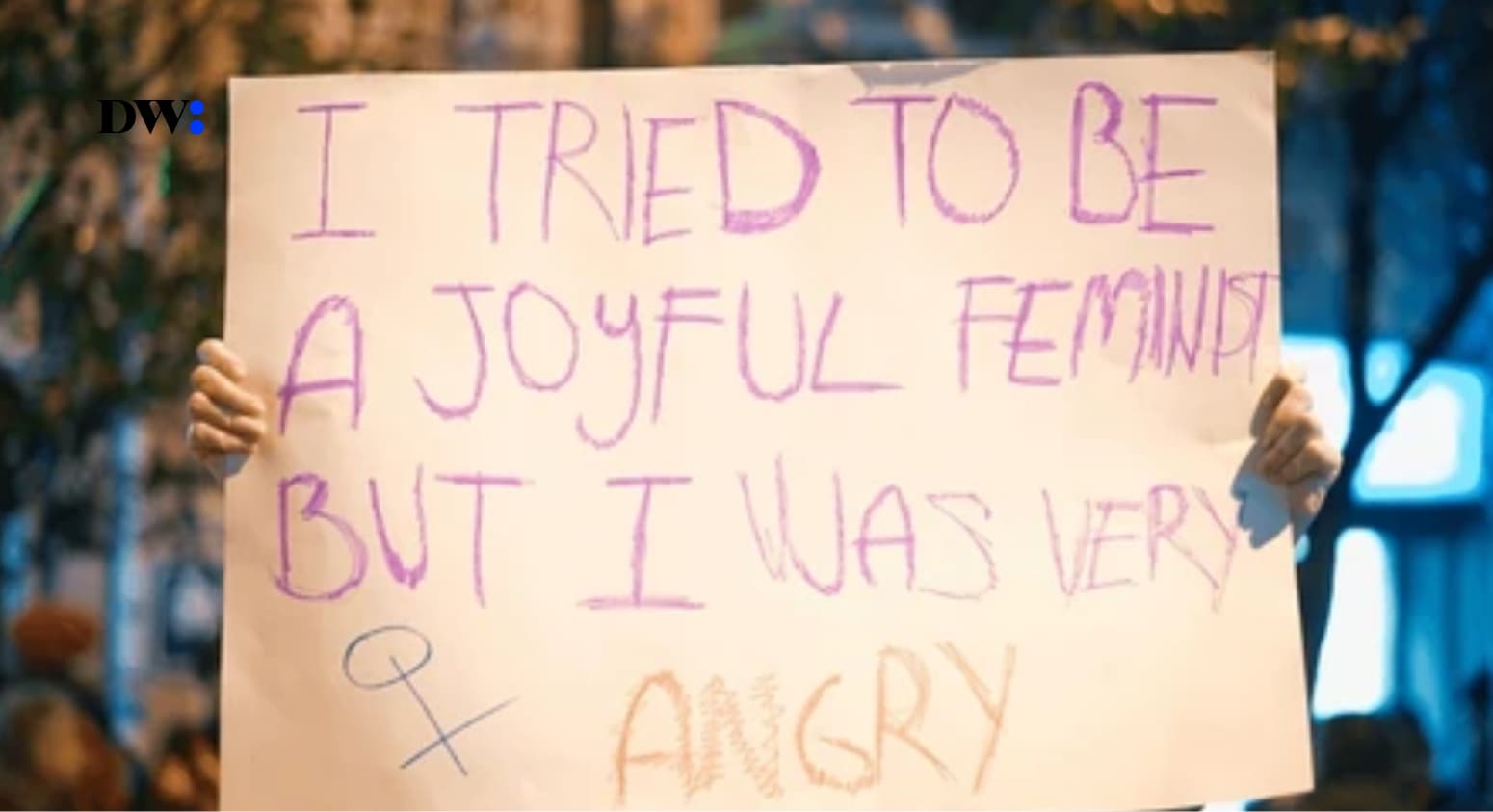Shame is one of society’s biggest tools; and has been, for centuries, used in silencing, discrediting and dehumanising women and our lived and shared experiences. Every form of Gender-based Violence against women thrives on the back of shame to safely take its victims out before they have a chance to speak up against perpetrators.
Shame begets silence, and a silent woman can prevent: a man from losing his status at church because he takes advantage of the girls in his care, losing his job because he demands sexual favours from junior female workers, can prevent a man from going to prison because he pounces on his wife every day or because he likes to touch little girls.
Dirty Laundry is a spoken word project by Nigerian Poet Wana Udobang, stage name: Wana Wana, which has over the years since its publication as a spoken word album in 2017, morphed into a mixed media installation which has been exhibited in Lagos, Nigeria in April, Port-Harcourt in May and recently, Abuja in December 2022.
Speaking to Wana Wana, when asked what the importance of her work: Dirty Laundry was, she said, “…it is an installation, but in many ways, the concept is also a provocation. To do this thing that is forbidden, a call to bare ourselves open. Part of that opening is for us to unburden ourselves. Still, it is also an interrogation to our cultural response to the weaponizing of shame as a silencing tool towards women.”
“And honesty can be a challenge because it requires peeling through deep layers to get to certain uncomfortable truths but interrogating those different layers is something I find compelling as an artist.”
Through poetry, Wana has woven stories that transcend generations of sexual abuse, coming into one’s self and body, trauma, healing, stories that interrogate the culture of silence in our community and all the ways this culture has shaped our perceptions and lived experiences of girlhood, womanhood, relationships, body and identity.
Still, on the importance of the work and the significance she set out to imprint in the mind of her audience, she says, “many elements of the work represent different things, from the towering hanging works, which is a kind of disclosure and exposure, to the women washing which invites the audience into the ritual of cleansing. But it also represents the space of domesticity women often occupy and how many acts of violence toward women and girls are situated there.”
About the elements of the exhibition mentioned above, at the exhibitions, Wana’s words are written on draped linen scrolls, hanging as if pegged to cloth lines like laundry hung out to dry. There are women at corners of the room, washing clothes, and pieces of cloth are being passed to the audience to write down their own truth, which is then given to the women to wash.
I often tell the audiences to sit with the discomfort and allow themselves feel what they feel. Nothing is hidden in the space, essentially. The things we sweep beneath the carpet are here towering over you, and you are forced to face it and converse about it…there is no escaping these stories. You will see them, hear them and feel them.
Talk to us about why you chose this delivery method, its significance on your work, and how it’s elevated your audience’s experience based on the past two shows in Lagos and Port-Harcourt.
I’m very interested in storytelling and how people can consume stories and ideas. Dirty Laundry is an idea I have had for about twelve years, so I suppose I am always naturally playing with ideas, methods, and ways of delivering stories….With this project, I wanted something immersive with text and writing. I often feel we think of texts and writing in very static ways, and also being a performer, text is very fluid for me and I wanted to see how that would play out as a public installation, I wanted something that also confronted an audience.
I think that was the significance of the way the work was delivered. You are in the space surrounded by these massive sheets of material with text emblazoned all over it. I often tell the audiences to sit with the discomfort and allow themselves feel what they feel. Nothing is hidden in the space essentially. The things we sweep beneath the carpet are here towering over you and you are forced to face it and converse about it. There are also audio and visual elements which makes it multi-sensory, so there is no escaping these stories. You will see them, hear them and feel them.
We found out that in your Lagos and Port-Harcourt shows, you asked your audience to write their own Dirty Laundry on pieces of cloth. I think that’s a new level of intimacy and connecting with your Audience; why did you decide to?
My work is always an invitation, it isn’t just about observing, or just showing up. I want us to mutually participate. Connection also underscores the ways that I work. Art is a connector for me, and I want us all to experience that connection. So getting people to write their own pieces of Dirty Laundry and washing it was in many ways asking them to unburden themselves, but it was also my way of saying “I see you” and “You are not alone”.
“As an artist, I like work that is honest and that is the work that I create. I think honesty is also a value I hold dear as a person, however murky life is, however untidy, that interests me more than a performance of righteousness or perfection.
I assume it takes a certain level of self-acceptance to push through the shame people/society project on a person or expect them to feel about certain things, to talk about the things you discuss in your work openly.
How did you come to this point in your life where that shame no longer had a hold on you? What has the journey been like, and how has it improved your work as an artist?
As cliché as it sounds, I continue to say that poetry saved my life. Poems helped me articulate my experiences, enabled me make sense of my life and navigate through the world. So strangely it has never been a thing I consciously think about until the work is done and someone says to me, “I can’t believe you are talking about this”. So in many ways, my writing had been a form of catharsis for me and I suppose consequently other people that encounter and consume it.
As an artist, I like work that is honest and that is the work that I create. I think honesty is also a value I hold dear as a person, however murky life is, however untidy, that interests me more than a performance of righteousness or perfection. And honesty can be a challenge because it requires peeling through deep layers to get to certain uncomfortable truths but Interrogating those different layers is something I find compelling as an artist.
Know that liberation is a practice, you don’t arrive at some destination.
During the interview, Wana described that although she never creates with a prescribed idea of how she wants her audience to feel what they could take away from her work, she would want the audience to see her work as a call to liberate themselves from the ways that society and culture have used shame as a tool of suppression in the lives of women.
She goes on to explain that from her own experience of letting go of shame, her biggest takeaway and a lesson she would like to pass down to younger women is to not internalize any kind of shame, the ones from society or the ones we have placed on ourselves, she says “…don’t make it a stumbling block in your own life. Know that liberation is a practice, you don’t arrive at some destination.”
When you put so much of yourself out there in work do you feel a sort of pressure or exhaustion from the gravity that holds in your art? If yes, how do you unwind till you become yourself again?
I think I make work about many things, sometimes it’s things I’m experiencing or even about the lives of others. I generally make work about things that feel pressing on my mind, or I consider important in that moment but most importantly it must feel honest for me.
I also try to take good care of myself emotionally, well at least I have really put a lot of effort into that. But no I don’t feel any gravity or pressure because my personal experiences are only a portal into talking about much bigger systemic issues. So I suppose for me, I’m also thinking of a much bigger idea or concept but enter those topics through intimate and familiar experiences. I do what I feel comfortable doing.
Getting people to write their own pieces of Dirty Laundry and washing it was in many ways asking them to unburden themselves, but it was also my way of saying “I see you” and “You are not alone.”
What has your experience been like curating and hosting a mobile show? And what has this experience opened your eyes to as an artist, lessons? Challenges? Strengths?
I have loved every minute of hosting the show in different cities. Each installation came with its own spatial complexity and city’s vibe. In Lagos, we were inside a gallery. In Port Harcourt, we draped the works in the gallery and around the building; in Abuja, we’re in this massive atrium with grand columns.
So we are constantly iterating on the architecture, to the city, to the people, there is so much that is happening differently as we enter a city and a space. And of course, the people bring their own energy into it which is serendipitous and magical. Every challenge becomes a possibility. It also reminds you as an artist that you are constantly co-creating, and it is a very humbling reminder.
What are your favourite and least favourite parts of a travelling exhibition?
I love travelling so moving through cities will always excite me. Working with people or spaces you aren’t familiar with can have its challenges from dealing with the different paces of work to organisational issues.
For your fans who couldn’t make it to the shows, where can we watch past events and keep in touch?
They can catch still images and reels on my Instagram, there are performances and short documentaries from each city on my youtube as well.





